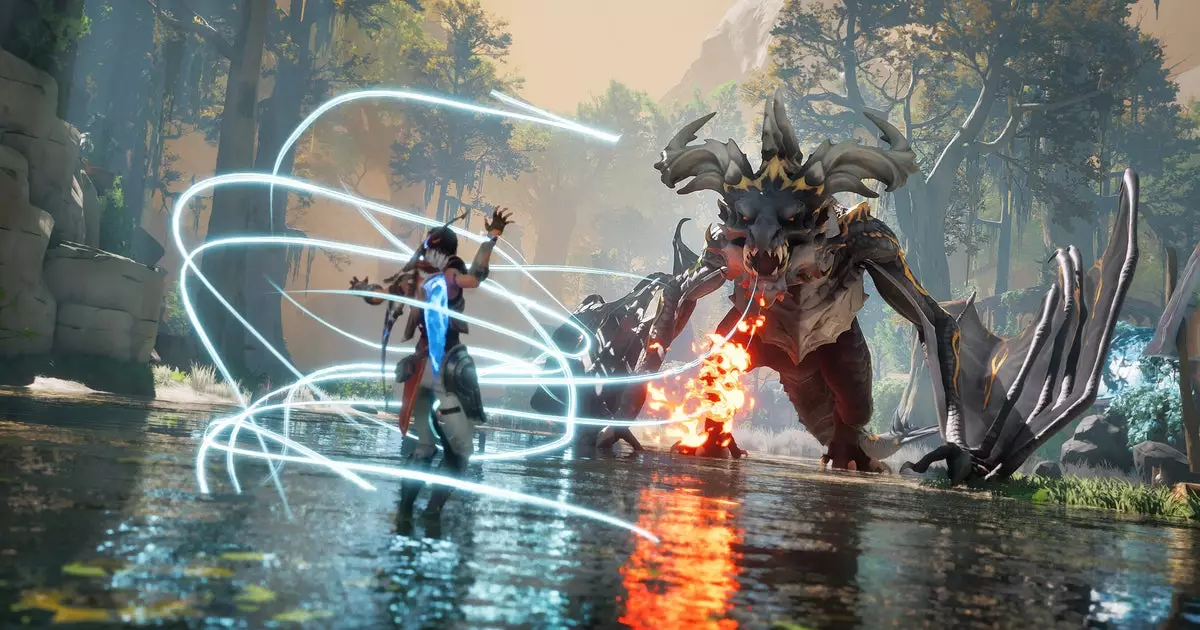In recent years, the video game industry has witnessed a profound transformation, particularly as seasoned developers from iconic studios like BioWare venture into the independent landscape. This shift not only reflects the changing dynamics of game design but also emphasizes the innovative potential of small studios created by veterans of the trade. Their journey is marked by triumphs, struggles, and the quest for creative freedom. Among these emerging entities, the spotlight shines brightly on Yellow Brick Games, a studio forged from the legacy of former BioWare director Mike Laidlaw, whose ambitious new title, *Eternal Strands*, is set to launch on January 28.
The story begins with the exodus of talented developers from BioWare, a studio renowned for its deep narratives and character-driven games. This migration, likened to a cataclysm, scattered these creators across various regions, much like celestial bodies dispersing through the cosmos. Some established studios have flourished. In contrast, others, such as Humanoid Origin and Worlds Untold, have faced unfortunate closures or uncertain futures, highlighting the unpredictable nature of game development in today’s market.
While the success of certain offshoots offers hope, the mixed outcomes of these former BioWare studios raise questions about the industry’s ability to nurture new talent and ideas. Will the lessons learned from high-profile releases translate into greater independence or stagnation? In an era fueled by complexity and commercial expectations, the struggle for authentic game development persists.
As *Eternal Strands* emerges from this intricate tapestry of loss and opportunity, it embodies the ambitions of Yellow Brick Games. The game, characterized as a hub-based fantasy action experience, allows players to inhabit the role of a powerful battlemage—utilizing a diverse array of elemental skills while interacting with a vibrant world. It draws inspirations from iconic games, fusing beloved mechanics from titles like *Shadow of the Colossus* and *Zelda*, crafting a hybrid experience that speaks to nostalgia while striving to redefine engagement in newer contexts.
Even as excitement builds for the game’s imminent release, it’s essential to approach this new offering with a critical eye. While the gameplay mechanics, like creating ice bridges or taming telekinesis to manipulate the environment, showcase creative versatility, some observers express concerns about the visual direction and overall artistic coherence. Will the design choices resonate with players accustomed to the emotionally resonant aesthetics of previous BioWare titles, or will they feel too sanitized and generic?
An Engaging Experience in a Diminished Landscape
The demo available on platforms like Steam and Epic Games Store presents an opportunity to immerse in the early stages of this universe, reminiscent of mid-tier games that once dominated the landscape. Many fans of the gaming community reflect on how titles like *Psi-Ops: The Mindgate Conspiracy* harnessed engaging physics systems that rewarded creativity and dynamic interaction. A similar spirit seems to breathe within the gameplay of *Eternal Strands*, suggesting that Laidlaw and his team may be tapping into a nostalgia that could lead to innovative possibilities.
Another critical aspect of the demo is the introduction of an intricate crafting system alongside diverse weapon classes and magical options. By allowing players to customize their battle strategies, Yellow Brick Games seems intent on enriching the gameplay experience, a move that might appeal to both casual gamers and those seeking in-depth exploration.
Looking Ahead: Hope Meets Anticipation
As we stand on the precipice of *Eternal Strands*’ release, the gaming community eagerly awaits to see if Yellow Brick Games can bridge the gap between nostalgia and innovation. The uncertainties surrounding its visual identity and gameplay execution reflect broader themes in the industry as studios strive to carve out distinctive paths. The legacy of BioWare, with its storied past of storytelling and character development, looms heavily but provides a valuable foundation upon which Yellow Brick Games hopes to build.
Ultimately, the success of *Eternal Strands* could signify a resurgence of mid-tier games brimming with creativity and ambition, offering both players and developers a hopeful reprieve from the industry’s iterative processes. It remains a testament to the resilience of game developers who dare to carve new pathways in a landscape fraught with challenges. As the January release nears, eyes will be fixed on Yellow Brick Games—not just for the game itself, but also for what this project represents: a courageous step forward for former titans of the industry in their quest to redefine the gaming experience.


Leave a Reply
You must be logged in to post a comment.